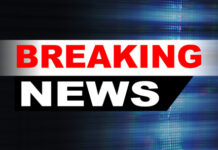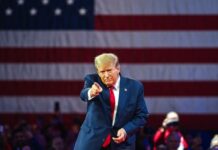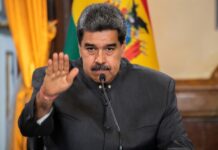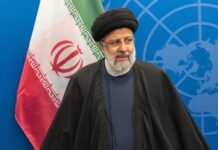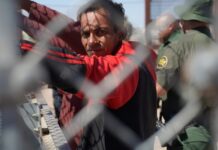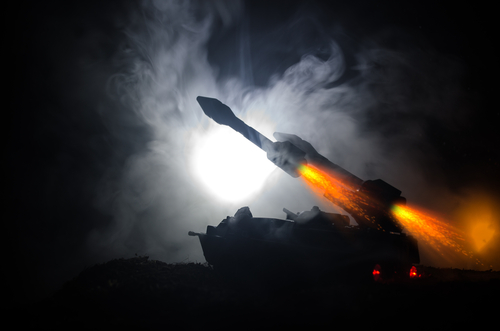
Tensions escalated in Iraq on Tuesday evening as a suspicious attack struck a U.S. military facility near Baghdad International Airport, just hours before the Iranian President Masoud Pezeshkian was set to arrive in the capital. The explosion occurred at a logistical support center for the U.S. embassy, raising alarms about the motives behind the timing of the attack.
The incident unfolded at approximately 11:00 p.m. local time, with reports suggesting that two Katyusha rockets may have been fired at the compound. Iraqi security officials confirmed the blast but have been unable to verify the exact cause or identify any group responsible for the attack. Fortunately, no casualties were reported, though the full extent of the damage remains under investigation.
انفجار في منطقة الشعلة غرب بغداد ناتج عن تكتك مفخخ بعبوة ادت الى استشهاد شخصين وجرح عدد اخر .. القوات الامنية تضرب طوقاً امنياً
IED explosion west Baghdad 2 KIA and couple civilians wounded 👀👀🥷🏻🥷🏻🚨⏰ pic.twitter.com/tsOZpFF1It— ME ساسوكي (@mobiledeath88) September 9, 2024
Iranian-backed Kataib Hezbollah, one of Iraq’s Shia militias, quickly distanced itself from the attack. A spokesperson for the group, Jaafar al-Husseini, labeled the timing of the explosion "suspicious," suggesting that it was meant to derail President Pezeshkian’s high-profile visit to Baghdad. Al-Husseini urged Iraqi security forces to expose those behind the incident, implying that it may have been a calculated attempt to sour relations between Iraq and Iran.
President Pezeshkian’s visit marks a significant moment in Iran-Iraq relations, as both nations continue to strengthen their political and economic ties. The trip, his first official foreign visit, is seen as a strategic move to bolster Tehran’s influence in Iraq amidst ongoing U.S. military presence in the region. Despite being close allies, Iraq has tried to maintain a balance between Tehran and Washington, with roughly 2,500 U.S. troops still stationed in the country as part of the ongoing counterterrorism efforts.
🇮🇶🚨Local sources report a suspected US drone attack on the headquarters of Hashd al-Shaabi (PMU) near al-Suwaira area north of Wasit Governorate.
It is reported that an American MQ-1C drone was flying over the capital, Baghdad, before the strike. pic.twitter.com/BfFJaLeYCQ
— IWN (@A7_Mirza) September 9, 2024
The attack comes in the context of increasing tensions in the region, particularly as Iranian-backed groups have escalated their hostility toward U.S. bases in Iraq and Syria. Since the war in Gaza began in October, these militias, collectively known as the Islamic Resistance in Iraq, have launched drone and rocket attacks against U.S. military installations in solidarity with the Palestinian resistance. The incident at Baghdad airport is believed to be part of this broader campaign to pressure American forces out of Iraq.
Despite these attacks, the U.S. government has remained steadfast in its commitment to maintaining a military presence in Iraq. While there have been ongoing negotiations between Washington and Baghdad regarding the future of U.S. troops, these talks have so far only centered on transitioning the role of U.S. forces from combat to advisory. A full withdrawal remains off the table, and there is little indication that the U.S. intends to leave Iraq anytime soon.
Iran’s influence in Iraq has grown steadily since the U.S.-led invasion in 2003, which toppled the Sunni-dominated regime of Saddam Hussein. With a shared Shia majority, the two nations have formed strong religious, economic, and military ties. However, the U.S. presence complicates the relationship, with both Washington and Tehran vying for influence over Baghdad’s leadership.
As President Pezeshkian’s visit progresses, he is expected to meet with Iraqi Prime Minister Mohammed Shia al-Sudani and President Abdul Latif Rashid, further cementing Iran's foothold in Iraqi affairs. His agenda reportedly includes visits to key cities of political and religious importance to both countries, underscoring Iran’s strategic interests in maintaining close ties with its western neighbor.

